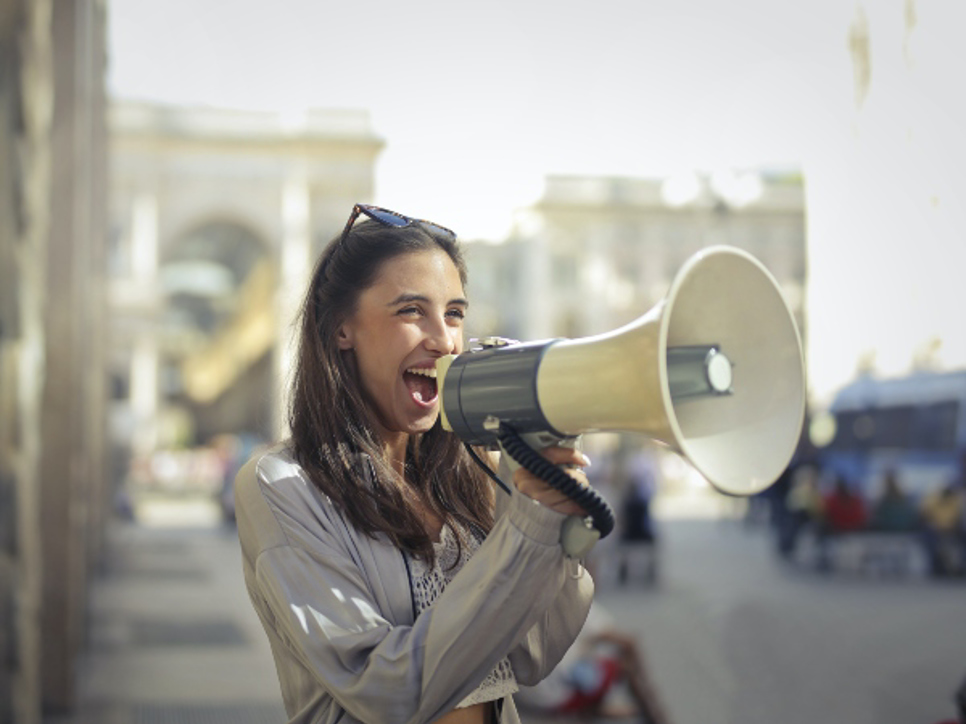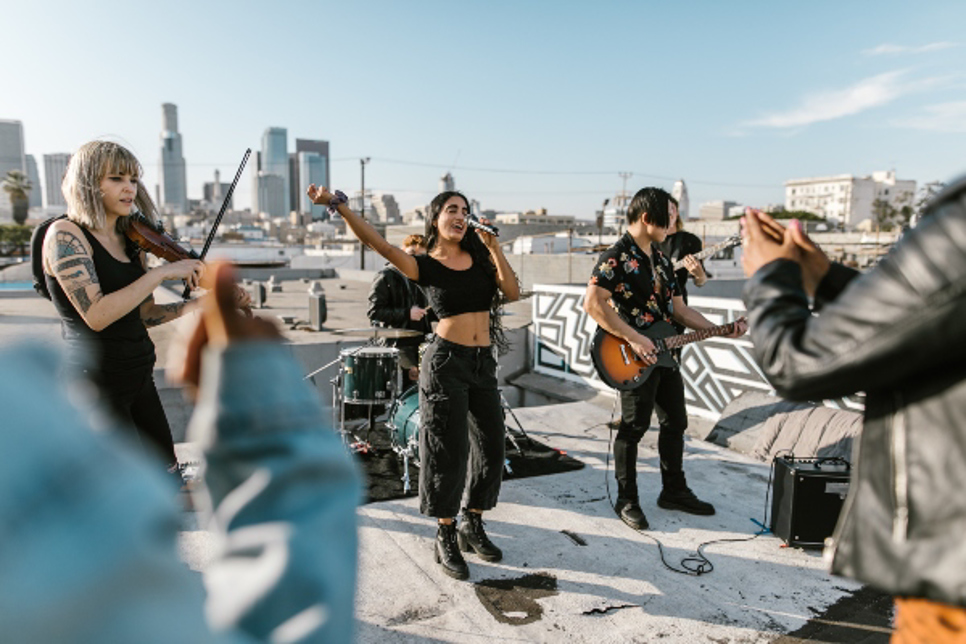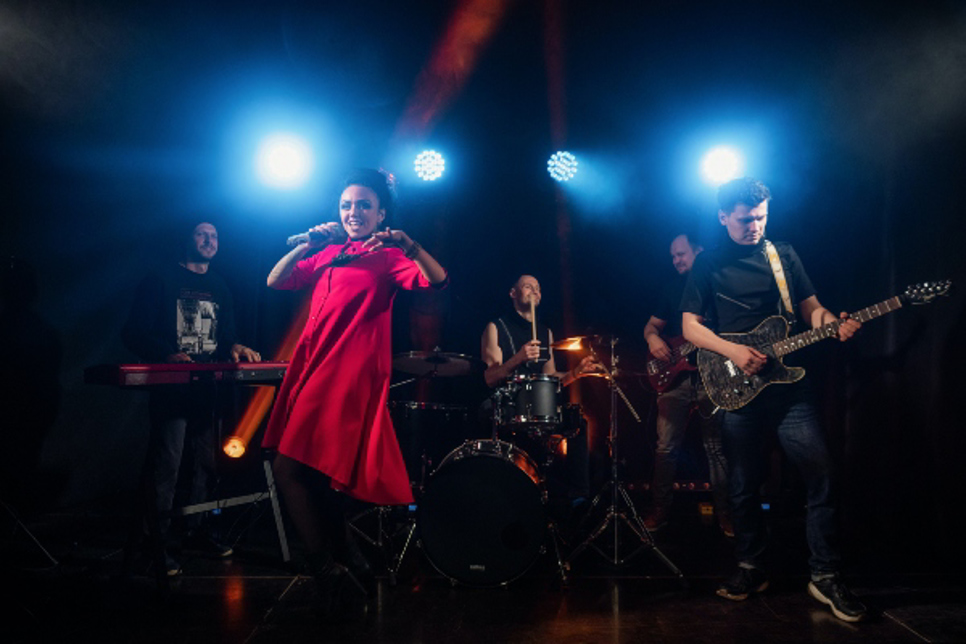When you attend a wedding or event, you expect to be entertained by live music, speeches, and other performances. However, sometimes the noise level can become excessive, leading to complaints from neighbors, fines from local authorities, and even lawsuits. This is where noise limiters come in.
A noise limiter is a device that measures and limits the sound level in a venue. It acts as a mediator between the event and the surrounding environment, ensuring that the noise levels do not exceed a predetermined limit.
Noise limiters are becoming increasingly important for wedding and event venues as more and more people live in close proximity to these venues. The need to reduce noise pollution has become a pressing issue, and venues must ensure that they comply with local noise regulations to avoid any legal or financial consequences.
The concept of noise limiters has been around for a few decades, and the technology has evolved over time. In the early days, noise limiters were simple devices that would shut off the power to the sound system if the noise levels exceeded a certain threshold. However, modern noise limiters are much more sophisticated and can measure and regulate noise levels in real-time without disrupting the event.

How noise limiters work
Technical explanation of noise limiters
Noise limiters work by measuring the sound levels in a venue and comparing them to a preset limit. The device typically consists of a microphone that picks up the sound and a processor that analyzes the sound signal. If the sound levels exceed the preset limit, the noise limiter will activate a control signal that can either reduce the volume of the sound system, limit the frequency range of the sound, or shut off the power to the sound system altogether.
Different types of noise limiters
There are several different types of noise limiters available on the market, and each has its own set of features and limitations. Some of the most common types include:
- Threshold limiters: These limiters simply shut off the power to the sound system if the noise levels exceed a predetermined threshold. They are the simplest and most affordable type of noise limiter but can be too harsh and disruptive for some events.
- Integrating average limiters: These limiters calculate the average sound level over a set period of time, typically 10-15 minutes. If the average exceeds the preset limit, the limiter will activate the control signal.
- Peak limiters: These limiters measure the highest peak of sound over a set period of time, typically 0.5 seconds. If the peak exceeds the preset limit, the limiter will activate the control signal.
C. How they measure and limit noise levels - Noise limiters use a decibel meter to measure the sound levels in a venue. Decibels are a unit of measurement for sound that represent the intensity of sound waves. The limit for noise levels varies depending on the location and time of day, but typically ranges from 55 to 75 decibels. The noise limiter will compare the sound level to the preset limit and activate the control signal if the sound exceeds the limit. The control signal can then reduce the volume of the sound system, limit the frequency range of the sound, or shut off the power to the sound system altogether. The type of control signal used depends on the type of noise limiter being used.
Pros and cons of noise limiters
Advantages of using noise limiters
- Compliance with noise regulations: The main advantage of using noise limiters is that they help venues comply with local noise regulations. This can prevent complaints from neighbors, fines from local authorities, and even lawsuits.
- Improved relationship with the community: By reducing noise pollution, venues can improve their relationship with the community and maintain a positive reputation.
- Protection of hearing: Noise limiters can protect the hearing of guests and staff by preventing excessively loud music.
- Flexibility: Noise limiters are flexible and can be customized to suit different types of events and venues.
Disadvantages of using noise limiters
- Negative impact on the atmosphere: Noise limiters can disrupt the atmosphere of an event by interrupting music and entertainment. This can be particularly problematic for events that require high-energy music and performances.
- Technical issues: Noise limiters are prone to technical issues, such as false triggering or failure to activate when needed. This can lead to frustration and delays during an event.
- Additional cost: Noise limiters can be costly to install and maintain, which can add to the overall cost of a venue.
Why some venues choose not to use them
- Lack of regulation: Some venues may choose not to use noise limiters if there are no local noise regulations in place or if they are not enforced.
- Negative impact on revenue: Venues that rely on loud music and entertainment may choose not to use noise limiters as they can negatively impact revenue.
- Resistance from guests: Some guests may resist the use of noise limiters as they may perceive them as intrusive or restrictive.
- Overall, noise limiters have both advantages and disadvantages, and their use should be carefully considered by event venues based on their specific needs and circumstances.
How noise limiters affect weddings and events
Impact on music and entertainment
- Volume reduction: The primary impact of noise limiters on music and entertainment is volume reduction. When the noise levels exceed the preset limit, the limiter will activate the control signal to reduce the volume of the sound system.
- Frequency limitation: In addition to volume reduction, some noise limiters may also limit the frequency range of the sound. This can affect the overall quality of the music and entertainment, especially for genres that rely on a wide frequency range.
How noise limiters can affect the overall atmosphere of an event
- Interruptions: The activation of a noise limiter can be disruptive and can interrupt the flow of the event. This can be particularly problematic for events that require high-energy music and entertainment.
- Negative impact on mood: The activation of a noise limiter can have a negative impact on the mood of guests and can create a sense of tension and anxiety.
- Perception of restrictions: The use of noise limiters can be perceived as restrictive by some guests, which can negatively impact the overall atmosphere of the event.
Tips for working with noise limiters to ensure a successful event
- Communication with the venue: It is important to communicate with the venue about the use of noise limiters and to ensure that all parties are aware of the preset limit and the consequences of exceeding it.
- Choose appropriate entertainment: When planning an event in a venue with noise limiters, it is important to choose appropriate entertainment that can operate within the preset limit.
- Soundcheck: It is important to conduct a soundcheck before the event to ensure that the sound system is calibrated to the preset limit.
- Select the right noise limiter: When selecting a noise limiter, it is important to choose one that is appropriate for the venue and the event.
- Overall, working with noise limiters can be challenging, but with proper planning and communication, it is possible to ensure a successful event while still complying with local noise regulations.
Legal requirements and guidelines
Overview of relevant noise regulations
- Local noise regulations: Local noise regulations vary by region and are typically enforced by local authorities. These regulations set the maximum allowable noise levels for different times of day and for different types of events.
- Environmental Health Act: The Environmental Health Act is a UK law that provides guidelines for noise levels in residential and commercial areas.
- Licensing requirements: Many event venues are required to have a license that outlines noise restrictions and requirements.
How noise limiters are used to comply with noise regulations
- Preset limit: Noise limiters are typically set to the maximum allowable noise level as outlined by local noise regulations.
- Automatic volume reduction: When the noise levels exceed the preset limit, the limiter will activate the control signal to reduce the volume of the sound system.
- Compliance monitoring: Noise limiters can be used to monitor and record noise levels to ensure compliance with local regulations.
Examples of noise limiters being used in practice
- The O2 Arena: The O2 Arena in London uses noise limiters to comply with local noise regulations. The limiters are set to the maximum allowable noise level, and the venue has implemented measures to ensure that the sound system is calibrated to the limit.
- Wedding venues: Many wedding venues now use noise limiters to comply with local noise regulations. This includes outdoor venues, which may be subject to noise complaints from nearby residential areas.
- Festivals and outdoor events: Festivals and outdoor events are also required to comply with local noise regulations. Many organizers use noise limiters to ensure compliance and to avoid fines and complaints.
- Overall, the use of noise limiters is an effective way for event venues to comply with local noise regulations and to minimize noise pollution. By using noise limiters, venues can maintain a positive relationship with the community and ensure a successful event.
Choosing a venue with noise limiters
Questions to ask when choosing a venue with noise limiters
- What is the maximum allowable noise level as set by local noise regulations?
- What type of noise limiter does the venue use?
- What happens if the noise levels exceed the preset limit?
- Can the noise limit be adjusted for different types of events?
- Can the noise limit be adjusted during the event if needed?
What to expect when working with a venue that has noise limiters
- Volume restrictions: When working with a venue that has noise limiters, it is important to expect volume restrictions and to plan entertainment accordingly.
- Soundcheck: It is likely that the venue will require a soundcheck to ensure that the sound system is calibrated to the preset limit.
- Communication with venue staff: It is important to communicate with the venue staff about the noise limit and to ensure that all parties are aware of the consequences of exceeding it.
How noise limiters can affect the cost of a venue
- Sound equipment: Venues with noise limiters may require specialized sound equipment that is calibrated to the preset limit. This may increase the cost of renting the venue.
- Staffing: Venues with noise limiters may require additional staff to monitor the noise levels and to ensure compliance with local regulations. This may also increase the cost of renting the venue.
- Maintenance: Noise limiters require regular maintenance to ensure that they are functioning properly. This may also increase the cost of renting the venue.
- Overall, when choosing a venue with noise limiters, it is important to consider the impact on entertainment, communication with venue staff, and the potential cost implications. By asking the right questions and planning accordingly, it is possible to ensure a successful event while complying with local noise regulations.
Noise limiters are an important consideration for wedding and event venues to comply with local noise regulations and minimize noise pollution. They work by measuring the noise levels and automatically reducing the volume of the sound system if it exceeds the preset limit.
There are several advantages of using noise limiters, including compliance with local regulations, improved community relations, and a safer environment for guests. However, there are also some disadvantages, such as limitations on entertainment options and potential cost implications.
When choosing a venue with noise limiters, it is important to ask the right questions and plan accordingly to ensure a successful event. This includes communication with venue staff, soundcheck, and adjusting entertainment options to fit within the noise limit.
Future developments in noise limiter technology and regulation may provide new solutions to improve the effectiveness and efficiency of noise limiters. This may include the use of advanced algorithms to detect and measure noise levels, as well as the development of new materials to reduce noise pollution.

Noise limiters are an important consideration for wedding and event venues to ensure compliance with local noise regulations and minimize noise pollution. By choosing the right venue and planning accordingly, it is possible to ensure a successful event while maintaining a positive relationship with the community.


